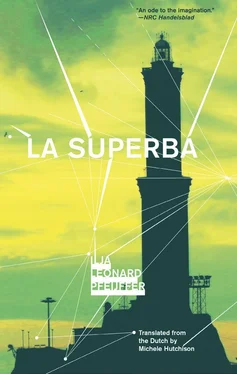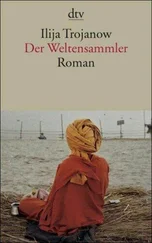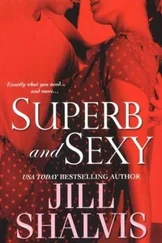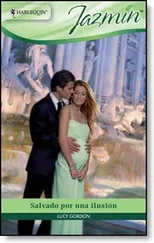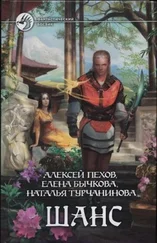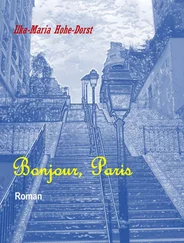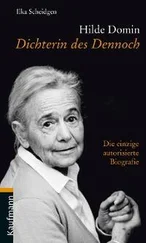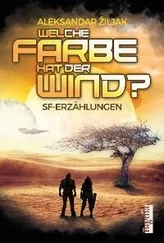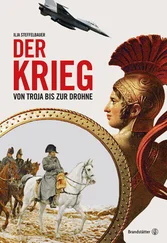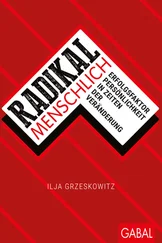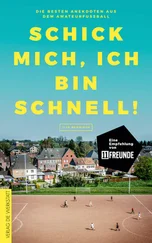We had to notify his family, but that was easier said than done. We knew of the existence of a son in Australia, a daughter in Greece, and a sister in Birmingham. We tracked down the son quite quickly. He really had become famous as “Dicko,” the bad guy on TV talent show juries. We tried to contact him through his management. There was no response. There wasn’t a single trace of the daughter. No doubt she had a different surname by now. The same went for his sister, but we did finally manage to trace her with a lot of effort and a bit of luck, thanks to friends of friends of our friend from Liverpool. She reacted calmly to the news of her brother’s death. “I’m glad it happened like that,” she said over the phone. “That’s the best death he could have wished for, the drunken bastard.”
We had a lot of contact with her over the days that followed. No, the body didn’t need to be shipped back to England. It was better to bury him in Genoa. “Let him take his nuisance where he spent his money. All those so-called friends of his are there. No one knows him here anymore.” And no, she wouldn’t come for the funeral. Her brother had always considered himself better off without her. He’d never wanted to listen to her when he was alive and she thought the chance very small that things would be any different now.
And his children? “Don’t bother.” Why not? “Let it lie. I don’t want to say anything bad about him.” But we need to keep them informed at least? “He never found that important when he was alive. He’s been dead to them for more than thirty years. From the moment he started drinking again. If he ever stopped. But for a while he acted as though he had, when the children were still young. And when he couldn’t keep it up anymore he just disappeared, from one day to the next. He didn’t even leave a letter on the kitchen table and he never got back in touch. We only heard by chance through the grapevine years later that he was in Italy.”
We asked about his professorship post. Perhaps the University of Cambridge would be interested in publishing an obituary or might be inclined to donate something as a sign of their gratefulness and respect? She burst out laughing. “Is that what he told you? Typical Don.” Wasn’t it true, then? “But when, then? Think about it. He went to university when he got out of the army. He was a mature student, as we call it. When he started his studies he was about twenty-six. He was over thirty when he graduated. His children had already been born. He started a Master’s thesis but never finished it, he ran off to Italy before that.”
But nevertheless, over the years he was a welcome guest at international academic conferences, wasn’t he? In particular, ones on the metaphysical poets? “Don’t make me laugh. He never left Italy. It wouldn’t have been possible. His passport ran out more than twenty years ago. I still remember the letter. His ex-wife gave it to me. I think I’ve still got it somewhere.”
And that astronomic pension, then? “Which pension?” The one he had at Barings Bank and lost because of Nick Leeson’s activities? “All the private investors were reimbursed before the bankruptcy. The truth is that Don never worked in his life, apart from perhaps a few private English lessons and a little translation job now and again. He didn’t have time to. He was a full-time alcoholic. His whole life long. He was already an old drunkard long before you knew him as an old drunkard. It’s a miracle he kept it up for so long. I’m happy he had such a pleasant death, because I do love him. Bury him there among his so-called friends and keep us out of it. And cherish the stories he had you believe. Let things be as he wanted them. I don’t want to hear anything else about it. I’ll transfer a contribution to the costs. That’s all. Thank you.”
17.
In Via Canneto Il Curto, in the stretch between Via San Lorenzo and Piazza Banchi, there’s a dusty little shop where you can buy old coins and medals. I’d never seen a customer go in, and although I’d never noticed a shopkeeper, either, he did exist. He heard the shop bell ring and came shuffling out of a back room in his dressing gown. He was even dustier than his shop. He asked me how he could be of assistance. I told him I needed one or two old decorations. He stared into space, deep in thought. Medals, I clarified, pointing at the shop window where medals of all shapes and sizes were displayed. Something gradually began to dawn on him. He nodded circumspectly and asked me what kind of medals I was thinking of. “English medals,” I said. “Decorations for bravery in battle or other exceptional services to the fatherland.” “English?” “Yes, English.” He shook his head and began to shuffle to his back room. I stopped him and said I’d take any other medals that were good. I chose four: the biggest with the most stars, crowns, and aureoles, with the most fake gold and the most colorful ribbons.
The funeral took place in the historic Staglieno cemetery. Our Scottish friend had been able to arrange a modest but pleasant spot through his contacts there for a friendly price. He didn’t want to say much about it, but I suspect he’d gotten a bulk discount by signing a contract for us all to take options on plots there at the prevailing rate at the moment of first use. To keep the costs even lower, a slot was chosen on a Tuesday morning at eight o’clock. We announced the time and place in an advertisement in Il Secolo XIX and a letter on the door of the Caffè Letterario on Piazza delle Erbe.
Despite the early hour, it was unbelievably busy. When the ceremony started with an a cappella performance of Don’s favorite aria “ O mio babbino caro ,” by his good friend Irene Cenboncini, the soprano from the Carlo Felice, there were hundreds of people around the grave, including pretty much every barman from in and around Genoa. Our Scottish friend gave an impassioned speech in Italian, in which he dwelt at length on a number of Don’s merits — ones he’d always been too modest to share with his Italian friends, such as his heroic role in various battles in Korea and Malaysia and the crucial role he played in a number of key moments in the history of the twentieth century as an agent for the British Secret Service. The medals shone on his coffin.
And then the coffin began to drop and, in a silence that resounded with respect, the grave stone was slowly revealed. It was a simple block of granite in the classical form with a curve at the top. And the only thing carved into it were the two words which had been the two most spoken words in Genoa all those years and which now rang out in silence for the very last time:
ciao don
18.
There was a long procession from Staglieno, along the banks of the River Bisagno back to the center. We passed Luigi Ferraris Stadium in Marassi. There was a large banner hanging above the main entrance, changing the name of the stadium to “Stadio di Don.”
On Piazza delle Erbe, all seven cafés were running at full fighting strength. The terraces had been set up outside at their maximum capacities and all the temporary staff had been called in. This turned out to be necessary. On that Tuesday morning, when all of Don’s friends flooded the square to raise a final toast to him, it was busier than a busy Friday or Saturday night. And even though nothing had been agreed beforehand, everyone drank gin and tonic, which everyone ordered as cappuccino senza schiuma . This led to some debauched scenes quite early in the day.
The game soon became who could remember the most jokes from Don’s immense but worn repertoire. Anyone telling a joke laughed louder than everyone else and then told it again a few more times in a loud voice to prevent others from cutting short their victory by telling a joke of their own. This Italian habit, which usually annoyed me, had something almost likeable at the time, because ultimately these were Don’s victories that were being celebrated with so much determination and noisy envy.
Читать дальше
